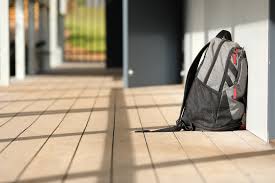WA crackdown on school violence
1 December 2018 Education Issues
Public school students who assault teachers will be automatically expelled, while fighting in the playground will see kids banned from attending school dances and sports carnivals.
Aggressive and out-of-control students face a raft of tough new consequences, revealed for the first time as part of a McGowan Government crackdown on school violence.
The “Let’s Take a Stand Together” action plan introduces automatic suspensions of up to 10 days for a child who attacks another student or instigates a fight — and pulling out a mobile phone to record an altercation rather than calling for help will attract the same punishment.
The consequences for assaulting a teacher are even more severe: principals will be told to immediately move to expel the perpetrator in the wake of the attack. Exclusions can be permanent or last for a set period of time, such as a term.
To ensure the safety of staff and students, extremely or persistently violent students will be yanked out of mainstream schooling and placed in alternative programs that will include therapeutic interventions to address behaviour.
Every public school will also be required to introduce a “good standing” program, under which students who fight and lose standing will be banned from attending events like school dances and sports carnivals. Students can earn their standing back through good behaviour.
In March, after viewing one video recorded at Busselton Senior High School that showed a boy stamping on the head of a fellow student, Education Minister Sue Ellery launched a sweeping review into violence in schools.
With the unveiling of the 10-point action plan, she said public schools had been empowered to take a stand against violence.
“This is about sending a really strong message — there will be consequences,” Ms Ellery said. “Schools need to do everything they can to ensure that all students are cared for and supported, but there also need to be consequences for violent behaviour.
“Teachers also need to know that their employer and government has their back and this package represents a spectrum of interventions that schools and the department can make.”
Ms Ellery has previously said she expects to see a rise in the number of suspensions and exclusions handed to students, which made alternative programs and placements vital.
“We recognised that in the interest of keeping students and staff safe, both physically and mentally, exclusions had to be an option,” she said.
“But when you exclude a student you still have a legal and frankly a moral obligation to provide them with an education.”
